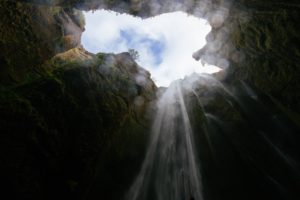“The wound is the place where the Light enters you.”
Rumi
In his article in the April 16, 2018 issue of the New Yorker, Author and Pulitzer-Prize winner Junot Diaz breaks his years of silence about being sexually assaulted as a child. His heart-rending account, which details the toxicity of keeping experiences like these secret and unspoken, brought tears to my eyes.
I so relate to the feelings of “bottomless self-loathing,” self-blame, and thoughts of suicide. I know from my own experience that breaking the silence, moving into and through the trauma is the only way to the other side. Diaz describes the rape as defining him. With me, it was only after working through the trauma that I was able to become a person who survived incest, rather than a self-identified incest victim.
In describing what it was like to break the silence and face his trauma, Diaz writes: “In Spanish we say that when a child is born it is given the light. And that’s what it feels like to say the words … Like I’m being given a second chance at the light.”
If you are holding silence, know that there is light at the end of the tunnel.


Thank you for sharing. I certainly understand the strain and difficulty to arrive at the point where the silence can break.
There were multiple times of abuse and multiple abusers. I have only broken my silence for one, not all.
Maybe there is still a possibility for me to find the light or for the light to come back.
I read Junot’s piece and I was emotionally moved. His courage to write it—his authenticity and showing how he grappled with what happened to him—his silence…a very powerful read. I applaud this work you are doing, Deb, and appreciate your sharing the work of others—it is a way people freeing their voice, and ia path to healing themselves and this broken world. ????
Hi M and Yvette,
Thank you for joining me here. Enabling people to have voice is, in my mind, central to their liberation and healing. My hope is that the more people speak their truth the harder it will be to ignore others and keep them invisible.
Sexual abuse in families and sexual assault on women of color by police are most difficult for victims to voice because, by the nature of the act, there are no witnesses and the power dynamics keep the victims from being believed.
Perhaps we can be witnesses after the fact by creating safe spaces for victims to come forward, tell their stories and be believed.
M,
What I can say to you is that the pain of holding silence is more than the pain of speaking out – in fact, speaking out is the only way for the wounds to heal – otherwise they fester.
Please reach out if there is any way I can support you in speaking your truth.
With love,
Deb